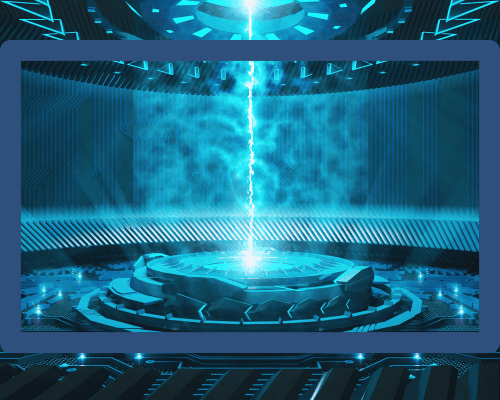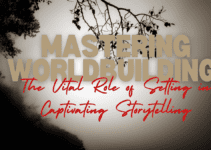Understanding Contemporary Fiction: An Overview of the Genre

Contemporary fiction is a vibrant and dynamic literary genre that captures the essence of modern storytelling. At its core, contemporary fiction reflects the world we live in today, delving into the complexities of human experience and societal shifts. This genre is defined by its focus on current literature trends, exploring themes that resonate with readers in our fast-paced, ever-evolving society.
What makes contemporary fiction so compelling is its ability to push boundaries and challenge traditional narratives. Authors are not afraid to tackle pressing issues like identity, technology, and cultural conflicts, weaving them into intricate plots that keep us engaged and provoke thought. The characters in these stories are often flawed yet relatable, mirroring our struggles and triumphs in a way that feels authentic.
As we immerse ourselves in contemporary fiction, we find ourselves not just reading but experiencing life through different lenses. This genre invites us to explore diverse perspectives and encourages empathy for others’ journeys. Whether it’s through the lens of a young adult navigating their place in the world or an older character reflecting on their past choices, contemporary fiction offers a rich tapestry of narratives that speak to our shared humanity.
In understanding contemporary fiction, we embrace the power of storytelling as a reflection of our time—a mirror held up to society that reveals both its beauty and its challenges. So let’s dive into this captivating genre together; there’s so much waiting for us between the pages!
The Key Characteristics That Define Contemporary Fiction
Contemporary fiction is a vibrant tapestry woven from the threads of our current reality, and its key characteristics make it a powerful vehicle for exploring the human experience. At the heart of this genre lies the emphasis on realistic settings that mirror our everyday lives. These environments are not just backdrops; they breathe life into stories, allowing readers to immerse themselves in familiar streets, bustling cafes, and intimate homes.
Relatable characters are another hallmark of contemporary fiction. Authors craft individuals who reflect the complexities of modern life—characters with flaws, dreams, and struggles that resonate deeply with readers. We see ourselves in their journeys, fostering connections that transcend the pages and evoke empathy.
Modern themes take center stage as well, tackling pressing social issues in fiction such as identity, inequality, mental health, and environmental concerns. These narratives challenge us to confront uncomfortable truths while also offering hope and understanding in an ever-changing world.
Finally, the narrative style in contemporary fiction often breaks traditional molds. Writers experiment with voice and structure to create unique storytelling experiences that engage readers on multiple levels. This innovative approach invites us to think critically about not just what we read but how we relate to it.
Together, these characteristics define contemporary fiction as a dynamic force that reflects our society’s pulse—capturing both its beauty and its struggles while inviting us into a dialogue about what it means to be human today.
Popular Themes and Motifs in Contemporary Fiction You Should Explore

Contemporary fiction is an intricate mosaic pieced together with themes and motifs that resonate deeply with our modern experiences. One of the most compelling themes is the exploration of identity and self-discovery. Authors are diving into the complexities of what it means to find oneself in a world that often feels chaotic and fragmented. Through their characters’ journeys, readers are invited to reflect on their own paths, making this theme profoundly relatable.
Another prevalent motif is the intersection of technology and society. As we navigate an increasingly digital landscape, writers are examining how technology shapes our relationships, our values, and even our very humanity. This theme not only sparks critical discussions but also challenges us to consider the implications of our reliance on technology in everyday life.
Family dynamics also play a significant role in contemporary narratives. The portrayal of familial relationships—whether they be nurturing or tumultuous—offers rich ground for exploration. These stories invite readers to examine their own family ties, revealing both the beauty and complexity inherent in these connections.
Mental health representation has emerged as a crucial aspect of modern storytelling, bringing visibility to struggles that many face but often feel isolated by. Authors are bravely tackling topics like anxiety, depression, and trauma, fostering empathy and understanding among readers while encouraging open conversations about mental health.
Lastly, cultural diversity in literature has never been more vital. Contemporary fiction celebrates voices from various backgrounds, enriching our understanding of different cultures while challenging stereotypes and broadening perspectives. These diverse narratives not only entertain but also educate us about the myriad experiences that shape human existence.
As you explore contemporary fiction, immerse yourself in these powerful themes that reflect our world today—each story offers a unique lens through which we can better understand ourselves and each other!
The Role of Character Development in Crafting Engaging Contemporary Stories
Character development is the heartbeat of any engaging contemporary story, breathing life into narratives and captivating readers with dynamic characters. At the core of storytelling lies the journey of these characters, their evolution through trials and tribulations that shape their very essence. Character arcs are not just plot devices; they are powerful vehicles for emotional depth in writing, allowing audiences to connect on a profound level.
Building relatable protagonists is essential in today’s literary landscape. Readers crave authenticity and complexity, yearning for characters who mirror their own struggles and triumphs. When a character grapples with self-doubt or navigates the complexities of love and loss, it resonates deeply, inviting readers to reflect on their own experiences. This emotional connection fosters an immersive reading experience that lingers long after the last page is turned.
In crafting engaging stories, we must embrace the intricacies of character development—allowing our protagonists to grow, falter, and ultimately transform. It’s this passionate commitment to creating rich, multi-dimensional characters that elevates our writing from mere words on a page to unforgettable journeys that inspire and ignite the imagination. Let us celebrate the art of character development as we weave tales that not only entertain but also touch hearts!
Cultural Impact: How Contemporary Fiction Reflects Our Society Today
Contemporary fiction serves as a powerful mirror to our society, capturing the essence of our times and offering profound socio-political commentary through its narratives. As we navigate an ever-evolving world marked by rapid change, these stories resonate deeply with readers, reflecting societal changes in literature that challenge and inspire us.
Today’s contemporary authors are not just storytellers; they are cultural architects shaping the discourse around pressing issues such as inequality, identity, and justice. Through their compelling characters and intricate plots, they illuminate the struggles and triumphs of marginalized voices while critiquing systemic injustices. These writers have a unique ability to weave personal experiences into broader social contexts, making their work not only relatable but also transformative.
As we delve into the pages of modern novels, we find ourselves engaging with urgent themes that echo our own experiences. Whether it’s exploring the complexities of race relations or examining climate change’s impact on future generations, these narratives compel us to reflect on our values and actions. In doing so, contemporary fiction becomes a catalyst for change—inviting readers to question societal norms and envision a more equitable future. The cultural impact of these literary works is undeniable; they spark conversations that extend beyond the page and into our everyday lives, urging us to take part in the ongoing dialogue about who we are as a society today.
The Future of Contemporary Fiction: Trends to Watch For as an Author
The future of contemporary fiction is brimming with potential, and as authors, we stand at the precipice of a thrilling evolution. Contemporary themes are no longer confined to traditional narratives; they are evolving to reflect the complexities of our modern world. Themes surrounding identity, social justice, and mental health are gaining prominence, inviting readers to engage with stories that resonate deeply on personal and societal levels.
Digital storytelling innovations are revolutionizing how we craft our narratives. From interactive e-books to immersive augmented reality experiences, the possibilities for creative expression are limitless. These tools not only enhance storytelling but also invite readers into a more participatory role in the narrative journey. Imagine your audience not just reading your words but experiencing them in new dimensions!
Moreover, reader engagement strategies have become paramount in this digital age. Authors must harness social media platforms and online communities to foster connections with their audience. Building a loyal readership is about more than just selling books; it’s about creating an ongoing dialogue that keeps readers invested in your work long after they’ve turned the last page.
As we look ahead, it’s clear that contemporary fiction will continue to evolve alongside technological advancements and shifting cultural landscapes. Embrace these trends as an opportunity to push boundaries and explore uncharted territories in your writing! The future is bright for those ready to innovate and connect deeply with their readers!
Conclusion: Embrace Your Voice — Write Your Own Story Within the Contemporary Fiction Genre!
LET’S CONNECT!
There are many ways to connect withAmy Stewart Bell. We would love to know what you think about any of the topics we offer. We welcome your comments and want to interact with you!
If you haven’t yet, grab your copy of Once Captured, the first in Amy’s Captive Series. And now you can grab the second in the series,Uncharted Captivity, as well!
You can also connect in other areas. Join us on Instagram@AmyWritesAlland on Facebook@AmyWritesAll.
Be sure to join our community newsletter and you will get even more inside info!







